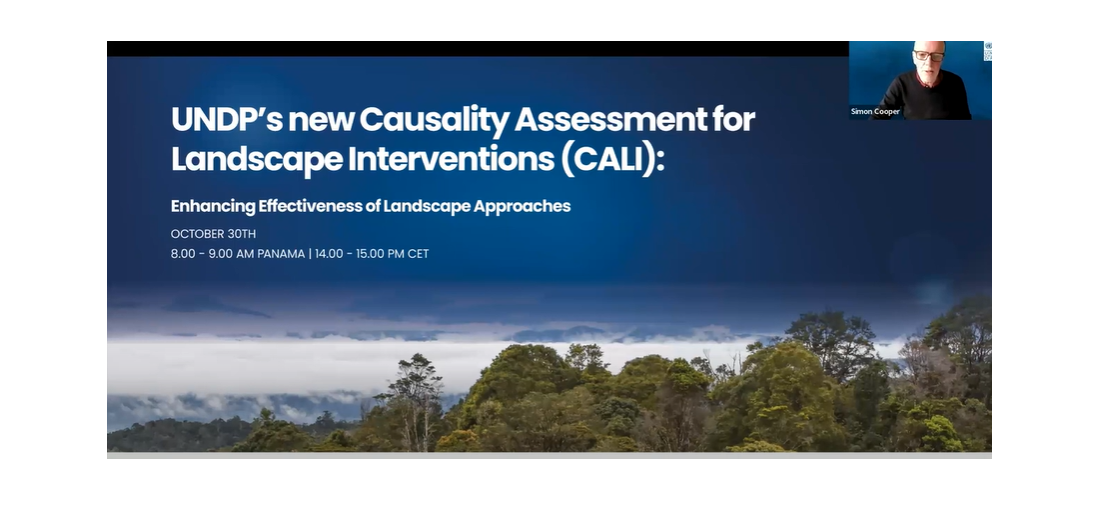The new Causality Assessment for Landscape Interventions (CALI) Guidebook provides a practical methodology for ongoing sensemaking and adaptation for project teams and oversight to ensure effective and optimal implementation of project resources aimed to reduce deforestation in landscapes. This webinar from the United Nation’s Development Programme (UNDP) provides an introduction to the tool, and explains why a causality assessment is required in the first place.
The webinar describes the main technical features of CALI and also provides an example of how the tool was employed in a Global Environment Facility (GEF) funded project in a landscape in the Amazonian region of Peru across 2.2 million hectares. CALI works by bringing landscape stakeholders together in participatory reflections around the workings of the theory of change of the project – including through unpacking causality and examining the soundness of underlying assumptions – always remembering the context of the complex system which is driving deforestation in the landscape.
